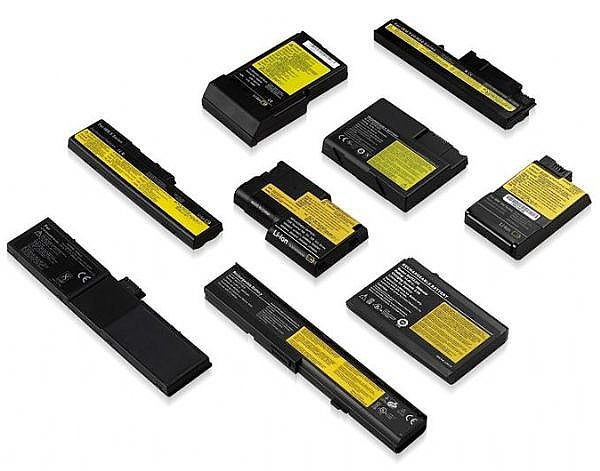The Battery That Brings You This Article May Soon Power Your BMW Or Mercedes

Tesla sometimes has been mocked as a bunch of hackers that simply wire-up a load of laptop batteries, whereas other serious and professional carmakers are looking into serious and professional batteries to power their future EVs. If egmcartech is not mistaken, then some of the serious and professional carmakers just had a sudden change of heart.
The price of the battery is the big bugaboo in the EV business. Carmakers apparently are running out of brilliant ideas to drive that price down. That’s why Toyota, Daimler, and BMW are seriously looking into using the cobbled-together lithium-ion laptop batteries Tesla is using. Well, Toyota and Daimler have shares in Tesla, so no surprise there. Daimler also has teamed up with China’s BYD, but what with the recent series of mishaps at BYD, Daimler is probably reorienting. Or maybe not, see below. BMW? They are looking for “something new.”
Custom made EV batteries cost about $700-$800 per kilowatt hour to produce. Mass-produced packs using strung-together laptop cells cost only $200 per kWh, says egmcartech. There are 6,831 laptop cells in a Tesla Roadster. For the foreseeable future, laptop batteries probably will have more volume than those made specifically for EVs. If you think that laptop-powered EVs catch on, then buy stock in producers of laptop batteries: Sony, Sanyo, Panasonic, or … BYD.

Bertel Schmitt comes back to journalism after taking a 35 year break in advertising and marketing. He ran and owned advertising agencies in Duesseldorf, Germany, and New York City. Volkswagen A.G. was Bertel's most important corporate account. Schmitt's advertising and marketing career touched many corners of the industry with a special focus on automotive products and services. Since 2004, he lives in Japan and China with his wife <a href="http://www.tomokoandbertel.com"> Tomoko </a>. Bertel Schmitt is a founding board member of the <a href="http://www.offshoresuperseries.com"> Offshore Super Series </a>, an American offshore powerboat racing organization. He is co-owner of the racing team Typhoon.
More by Bertel Schmitt

































Comments
Join the conversation
Thermal control is a serious issue. More and smaller cells are easier to control. An overheating cell can be taken offline while affecting overall battery output less than if a design had fewer and larger cells. At least this is true of the admittedly very few systems I've seen - which were involved in propulsion.
The most common, reliable lithium cell in the world is the 18650 (18 mm diameter, 65.0 mm long). It is used in laptops and the Tesla. It provides the best energy density for the money, and billions of them are produced every year. Flatpack cells are not as energy dense or cost effective, nor are other cylindrical cells. The problem is a matter of economies of scale - the 18650 has developed a monopoly. I help develop portable electronic devices for my company, and this is a constant problem. When we want to make a smaller product with a different form factor or energy requirement than the 18650 offers, we pay more money and have a less-reliable supply chain. Anyone who investigates this in detail will find the same thing. The custom batteries used in the Volt and the Leaf must be very expensive per kWH, since they are only produced in the tens of thousands. The trick Tesla has accomplished is an elegant means of manufacturing and controlling all those cells.
I’d be surprised if Tesla has found a way to stop that. If so, as I said, Tesla isn’t telling us that. is like owning an exotic car, owners put up with them even with high maint & unrelaibility until one day they either ran out of mulla/ no money no funny honey , had enuf time in the shop or hit the wall so they just take a bit of the bullet sell her cheap! Now is too early to admit the un-speakable truth yet.
then if its so good u think they would not be gloating all about it? my car runs on nothing, 150 mpg, zero maint. wave my digital salute to the Arabs.